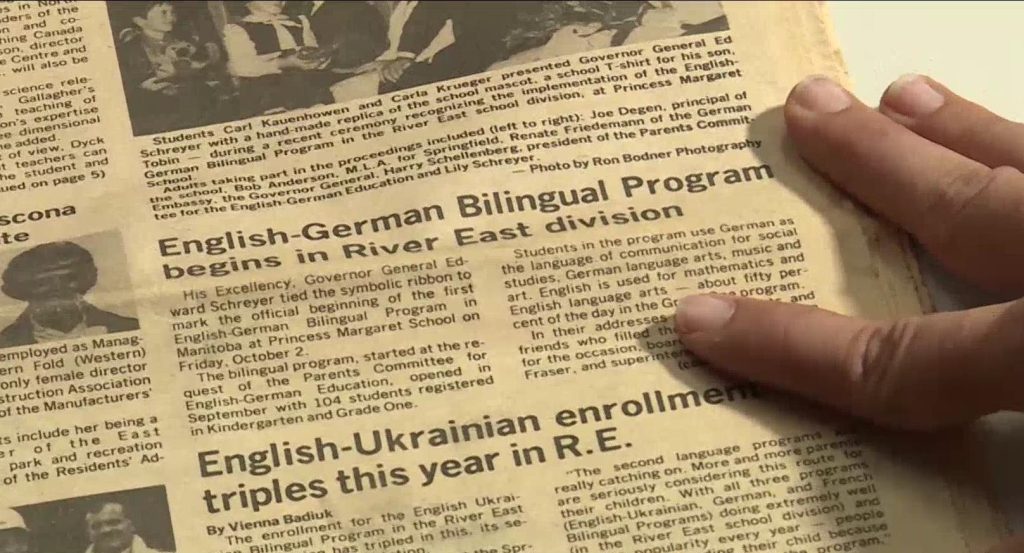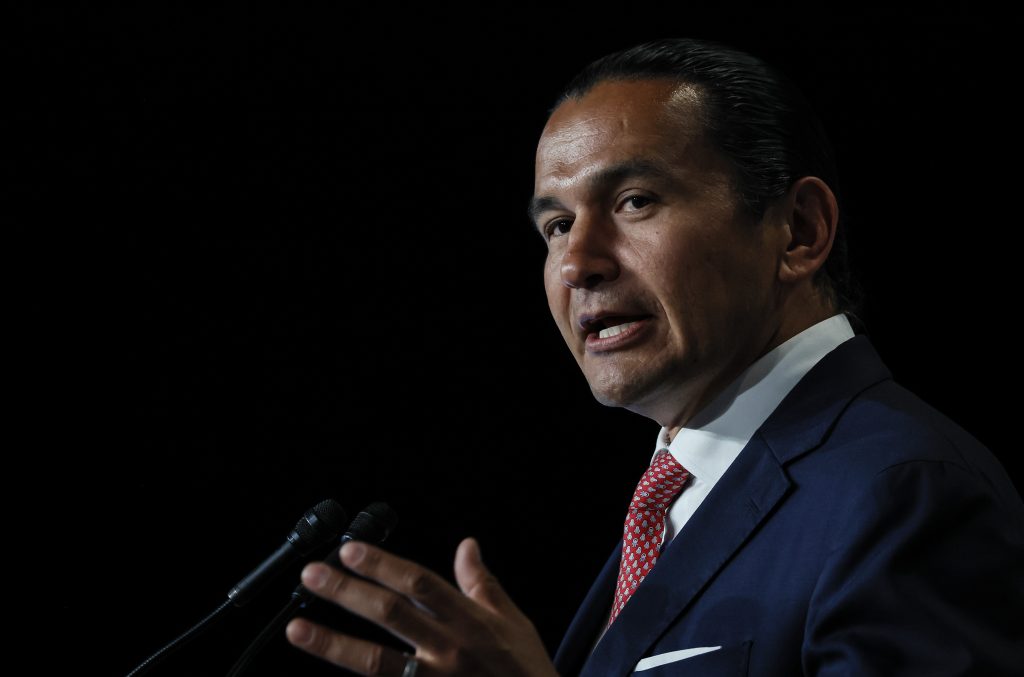Winnipeg parents concerned over future of German bilingual program

Posted October 26, 2024 6:06 pm.
Last Updated October 27, 2024 10:09 am.
In the 2021 census, German was the third most popular non-official language in Manitoba, with nearly 19,000 people saying they spoke German at home.
But now, those families who want to pass their German heritage onto their children are raising major concerns, and fretting about the future of a unique public school program that has helped immerse Winnipeg students in the German language for four decades.
In 1981, Angela Schellenberg’s father Harry sat next to then-Governor General Edward Schreyer, as they celebrated the new English-German bilingual program, at the River East Transcona School Division, with the Governor General saying at the time “the cultural heritage of our ancestors makes our country more interesting and more tolerant.”

But now 43 years later, while Schellenberg’s daughter can take part in her grandfather’s legacy, her son was not so lucky.
“Now I have two children, in two different school divisions going to school, so it’s been a bit of a challenge. And I guess part of the issue was capacity cause the schools are full, there was room for her two years ago but there is no space for him,” explained Schellenberg.
“It was really easier to get into medical school than it is to get my child into kindergarten in the German bilingual program.”
Svetlana Koos, who moved to Canada from Germany 10 years ago, says the German program has been greatly beneficial for her children, and doesn’t want to see families lose this opportunity simply due to their home address being located outside of the catchment area.
“’Yes, we sympathize, but we are at capacity, we can’t do anything. Too bad we have other priorities.’ That’s what we are hearing,” said Koos.
“Some children went from kindergarten to Grade 4, and now are denied access at middle school but they made those connections those friendships and they can’t continue.”
In a statement to CityNews, the school division’s CEO Sandra Herbst stressed “unprecedented” enrolment growth as the root of the issue – with 1,782 new students over the past three years, leading to a number of capacity challenges.
“Though we empathize with the circumstances of the families who reside outside of the RETSD boundaries and wish to attend schools in our division, our commitment remains in the provision of progressive, robust programming to the students whose families live in RETSD,” Herbst said.
Sara Sawatzky, a Grade 12 student who has studied German her entire school career, wrote a letter to RETSD administration last fall when students she knew began being left out.
“At first I was a bit confused, because like you are supposed to be able to continue from kindergarten to Grade 12,” said Sawatzky.
Ultimately the 16-year-old’s pleas were answered and some students were allowed to carry on. But her mother Theresa Lao still questions why those impacted were never consulted in the first place.
“That’s disheartening and disappointing, and to not have the Harry Schellenbergs, all those people in 1981 to not see this legacy continue is very sad,” said Lao.








